Can you use Niacinamide and Retinol together?
A big YES. Niacinamide and Retinol work as better halves of each other when used together. Excess dryness or redness of the skin caused by Retinol is calmed and hydrated by adding Niacinamide, making them a powerful duo!
Know these stars individually.
Niacinamide
It is a form of vitamin B3 that is extremely multi-skilled and has been quietly playing the sweet support role in skincare for a few decades.
Finally, in recent years Niacinamide is getting its due limelight and is found in all sorts of products: serums, moisturizers, and even body lotions.
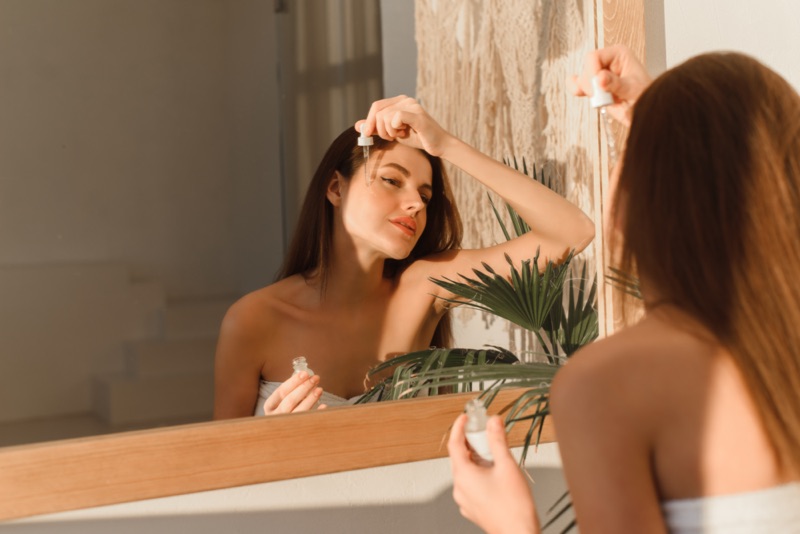
Why is Niacinamide so extremely popular?
Benefits of Niacinamide
- Niacinamide is a very stable ingredient.
- It strongly improves skin barrier function which helps in maintaining moisture and hydration.
- Decreases sebum and oil production of the skin hence it’s a loved ingredient for people with excess oil production and acne breakouts.
- Reduces inflammation and calms the skin.
- It builds Keratin, a type of protein that helps skin look firm, smooth, and young.
- Minimizes enlarged pore size over time.
- It helps with unwanted dark spots, hyperpigmentation, and uneven skin tone.
- It’s a strong glycation fighter that appears on the skin resulting in AGEs due to excess sugar eating.
- Helps with sun-damaged skin
- Reduces the severity of acne marks.
Multitasker ingredient told ya!
Who should use Niacinamide serum?
EVERYONE! Ha-ha, honestly it is well tolerated by even sensitive skin types and is a boon for acne-prone skin types. People with Rosacea, Eczema, and Atopic Dermatitis can get great benefits from adding Niacinamide to their skincare routine as it calms down the skin.
Can Pregnant women use Niacinamide serum?
YES, Topical Niacinamide is safe in both pregnancy and nursing.
What ingredients is Niacinamide compatible with?
This sweetheart gels up with all kinds of acids, peptides, ceramides, Vitamin C, hyaluronic acid, retinoids & antioxidants. It is actually an adjuvant ingredient, which means it enhances the effectiveness of other ingredients.
When should you use Niacinamide?
Daytime & Nighttime, both are good for using Niacinamide.
Does Niacinamide serum have any side effects?
In extremely rare cases, it causes a little redness or irritation or but mostly it’s a pretty safe ingredient to use.
Things to take care of when using Niacinamide in the skincare routine
- Concentration – Newbies start with 2% – 4%, and can go up to a maximum of 5%.
- Just a few drops are enough for the whole face and don’t forget your neck.
- Seal it with a nice moisturizer followed by sunscreen with SPF 30-50.
Retinol

A Derivative of Vitamin A known as a killer of all aging symptoms. Evidently, Retinol has done wonders on mature skin and problems like wrinkles, pigmentation, acne scars, and saggy skin.
It is the most searched substance on the internet for obvious reasons but there’s also a lot of confusion tagged along with Retinol.
Read everything here in the simplest form & clear out all confusion
What is the crazy Retinol Raving about?
- Retinol goes deep in our skin layers, eliminates dead skin cells & regenerates new fresh cells making the skin look soft & young.
- Increases Collagen production by speeding skin cell turnover resulting in firm skin and improves skin elasticity.
- It is the best topical treatment for treating acne and acne scars.
- Reduces dark spots, fine lines, wrinkles, and pigmented skin.
- Works on the uneven skin tone and on the rough skin texture making it smooth with constant usage.
Retinol is amazing, right? But you cannot mistreat it, it means Retinol needs to be used in a proper way, or else it can do more harm than good.
Incorporate Retinol in your skincare routine safely like this
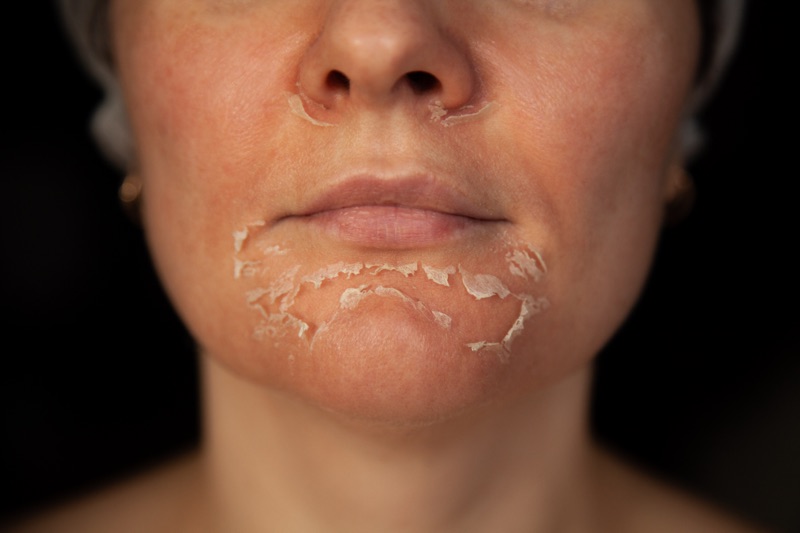
- For sensitive skin types and newbies, always start with a low concentration of Retinol cream or Retinol serum, like .025% – 0.1%, 2-3 times a week. When your skin develops a strong build-up, you can increase up to 1%.
- Pls, do not exceed the quantity of more than a pea size. Too much does more harm than good.
- Wear sunscreen when you’re out during the day. Using retinol makes your skin highly photosensitive which means the skin is very sensitive to UV light.
- Use Retinol only at night.
- Do not mix Retinol with any other ingredient without reading about it thoroughly as it doesn’t gel up with most of the ingredients.
- Use it at some distance from your eyes, mouth, and nose.
- Don’t forget to use it on your neck as well, the neck area ages even faster than your face because of thinner skin.
- Don’t use Retinol on damp skin. Pat the skin dry thoroughly before applying.
- Don’t forget to layer it with a good moisturizer followed by sunscreen.
- It may take up to 8-12 weeks to produce visible results so be patient with the Retinol purge phase. Once you start this journey, you won’t stop.
Who cannot use Retinol?
- Pregnant and nursing women should absolutely not use Retinoids of any kind.
- People who have Rosacea and eczema conditions should stay away from Retinol as it causes extreme dryness to the skin.
When should you start using Retinol?
The early 20s are just fine with proper precautions.
Any Retinol Bonus tip? (Only for experienced people)
To experience the deepest level of skin penetration, you might want to use the Retinol cream after you exfoliate, so your skin is maximum receptive to it.
What ingredients is Retinol compatible with?
Niacinamide, Hyaluronic acid, Azelaic Acid
How does Retinol work on your skin? (Very fascinating!)
- When we start aging, our skin cells don’t regenerate as quickly as they did when we were young.
- Now, Retinol directly affects our gene expression, regulating all our age-related issues by eliminating dead skin cells and allowing fresh, young skin cells to come up to the surface.
- It goes deep into the layers of the skin and exfoliates it from within. It also clears up acne because it cleans up the pores and eliminates any bacterial growth.
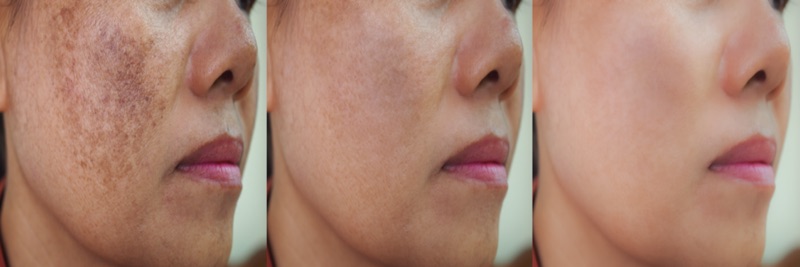
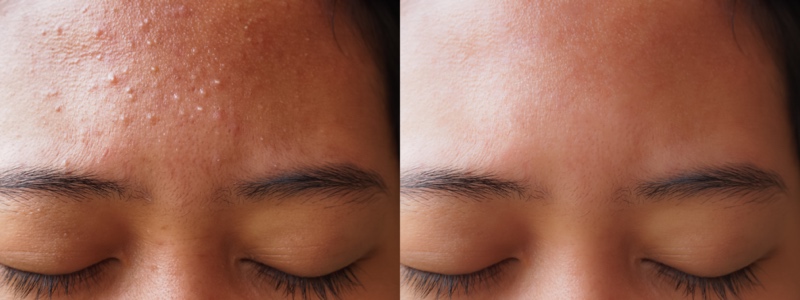
How to handle Retinol side effects like a pro
First, don’t panic. Even experts get retinol irritation sometimes. Skin will eventually come back to normal, but you can help it heal faster. See how
- Use fragrance-free cleansers and moisturizers.
- Avoid makeup for a while.
- Use Thermal spring water to calm the skin (Try from La Roche Posay)
- Take cold showers or ice your face (wrapped in a cloth) to wash the face, simply hands.
- Give a lot of moisture and hydration to the skin so it feels better. Apply moisturizers loaded with ceramides (Helps in skin barrier) and Hyaluronic acid.
- After Moisturizer, seal the skin with a light layer of Vaseline. It locks in all the goodies we’ve given & lets the skin heal faster.
- Stop using any other exfoliants, acids, AHAs, BHAs, peroxides, vitamin c, or salicylic acid until you are completely healed.
- Cica Balms, Glycerin, and Aloe Vera are great soothing and calming agents for the skin.
- DO NOT forget to apply sunblock before stepping outside. Remember your skin is already in a vulnerable state. UV rays at this point can make it worse.
Some exclusive shopping tips for Retinol
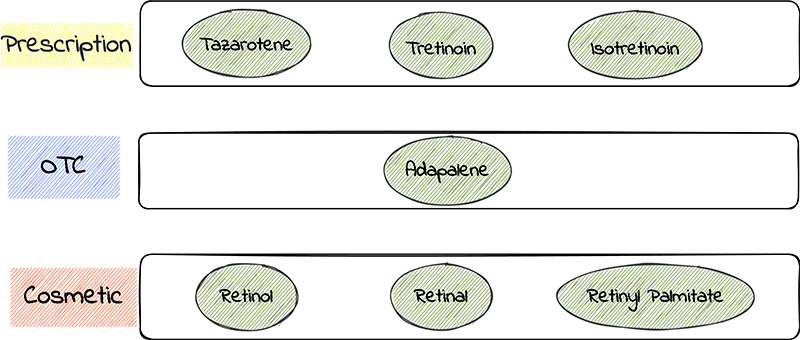
Packaging– Retinol packaging is literally everything. Air exposure means Retinol death. Therefore, Tubes form is undoubtedly the best & the safest form to use Retinol
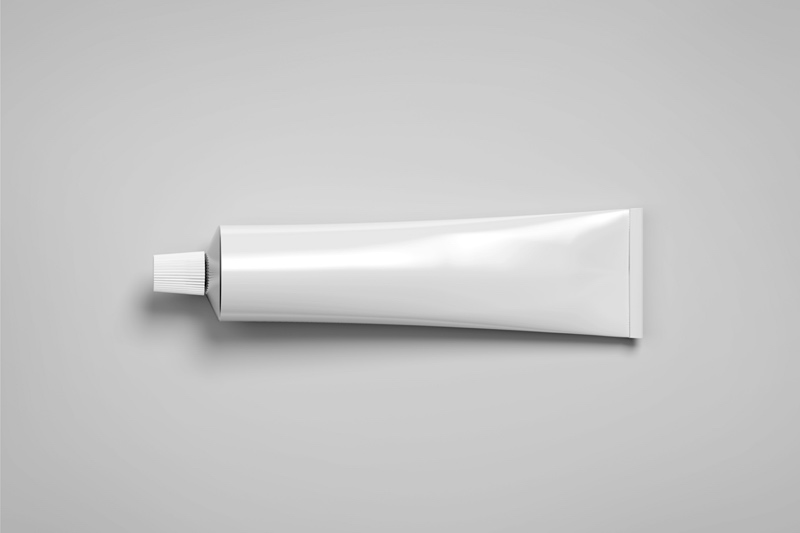
Storage- Retinol is not a very stable ingredient in nature & perhaps they like staying in cool, dark places. Quite away from Sunlight, hence your bathroom cabinets work just fine.
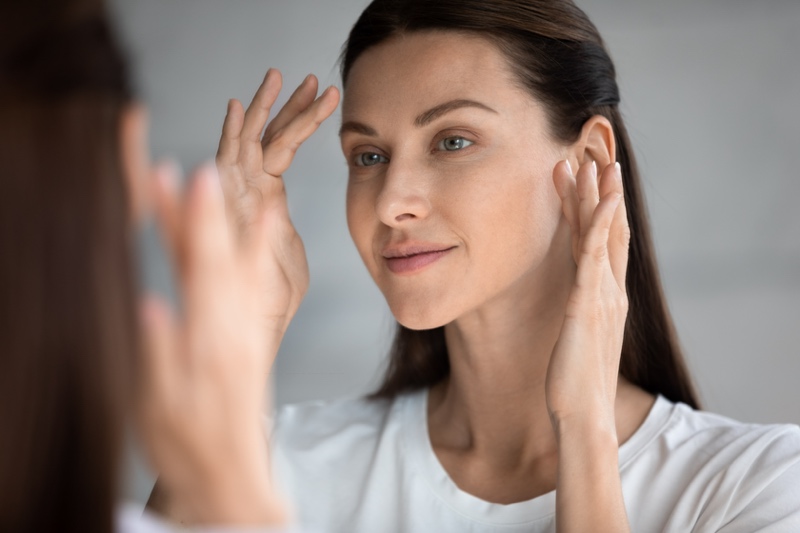
How to use Niacinamide and Retinol together in your skincare routine
Combining Niacinamide and Retinol can work wonders for the skin as Niacinamide helps mitigate the side effects of Retinol like; excess drying of the skin, flaking, and redness. Niacinamide also strengthens the skin’s barrier function and hydration levels which makes the buildup of the skin overall strong to initially bear the potency of Retinol.
- Wash your face with a non-comedogenic cleanser. (Means which doesn’t block pores)
- Layer Niacinamide serum first, as it is a water-based serum.
- Massage it gently on the face taking just a few drops. Don’t forget your neck.
- Then apply the oil-based serum- Retinol, only a few drops or a pea-sized amount in cream.
- Remember, do not apply it very close to your eyes, mouth, or nose.
- Seal it with a non-comedogenic moisturizer.
- Don’t forget to apply Sunscreen in the daylight the next day.
FYI: If you’re incorporating Niacinamide and Retinol together in your skincare routine, then it should be only at night because Retinol should be applied only at nighttime. Otherwise, apply Niacinamide in the day and Retinol in the night before sleeping.
Recommendations of best products for Niacinamide and Retinol
1. La Roche Posay pure Retinol serum with Niacinamide- If you’re looking for both Niacinamide and Retinol in one bottle. This is it. This anti-wrinkle concentrate is suitable even for sensitive skin types. It focuses on lines, wrinkles, premature sun damage, and uneven skin tone along with keeping dryness to a minimum. Price: 45 USD
2. QRx labs Niacinamide and Retinol serum- It is composed of 5% Niacinamide and 1% Retinol to create a synergistic formula that will work wonders on your aged dry skin. Price: 14.20 USD
Here are some of the best products containing Retinol:
1. Differin Gel – Adapalene is an evidence-based ingredient that is also FDA Approved to treat acne, and repair aging signs of the skin like fine lines and wrinkles with long-term use. Price: 18 USD
2. La Roche Posay Adapalene – Same ingredient- Adapalene with different brand names. Adapalene is a mild form of Retinol compared to Tretinoin or other forms of Vitamin A. Price: 37 USD
3. Avene Retrinal 0.1 intensive – It contains Retinol and Peptides and is one of the soothing retinol formulations which makes it feasible to use even around the eyes. It has some great reviews on curing crows’ feet around the eyes, wrinkles around the mouth and lines on the neck. Price: 74 USD
4. Cereve Resurfacing Retinol– It’s a combination of Retinol, Niacinamide, Licorice root, and Ceramides. This nongreasy gel textured formula is even suited for people with skin conditions like Rosacea. It’s a mild retinol formula compared to other retinol products. Licorice root brightens the skin, niacinamide helps calm the redness of the skin and ceramides strengthen the skin barrier which makes it a brilliant product for everyday use. Price: 23 USD
5. Neutrogena rapid wrinkle repair regenerating cream– This creamy and rich moisturizer is a wrinkle fighter for your skin. The description on its packaging claims that it starts to reduce the appearance of dark spots, wrinkles, and dullness in just one week of usage. Price: 28 USD
Here are some of the best products containing Niacinamide:
1. CeraVe Skin renewing night cream -Formulated with some of the best ingredients for everyday use for the skin; Niacinamide, Peptide complex, and Hyaluronic acid. Niacinamide controls excess sebum production, Peptides work on the aging signs of the skin and Hyaluronic acid keeps the skin plump. Price: 15 USD
2. La Roche Posay double repair face moisturizer- One of my favorite products! It protects and keeps the skin’s natural barrier strong and healthy. Formulated with calming ingredients like Niacinamide, ceramides, and prebiotic thermal spring water, this product is perfect for everyday use. Price: 21 USD
3. Cetaphil redness relieving night moisturizer- This one is especially for people with skin conditions like Rosacea and Eczema. This hypoallergenic product provides continuous hydration to the skin overnight to reduce the appearance of redness due to dryness overnight. It has soothing ingredients like Niacinamide, allantoin, licorice root, and caffeine which help to calm the skin. Price: 13 USD
4. The Inky List Niacinamide oil control serum- This light-weight 10% Niacinamide serum is formulated with Hyaluronic acid to keep the skin hydrated and supple for long hours. Price 9.99 USD
5. Good Molecules 10% Niacinamide serum- The brand is one of the most pocket friendly and beautiful cosmetic brands out there. I have personally tried the brand and the quality of their products really blew me away. Give it a try! Price: 6 USD
A few related Articles
If you loved reading this article, you will probably also enjoy reading:
- Can you use Glycolic Acid with Retinol?
- Should you apply Retinol before or After Moisturizer
- Can you use Benzoyl Peroxide with Retinol?
- Can you use Azelaic Acid and Retinol Together
- Can you use Retinol And Hyaluronic Acid Together?
- Can you use Vitamin C with Retinol?
- Can you use Salicylic Acid and Retinol Together?
Have great skin you guys, Love ~ Beauty Stroll